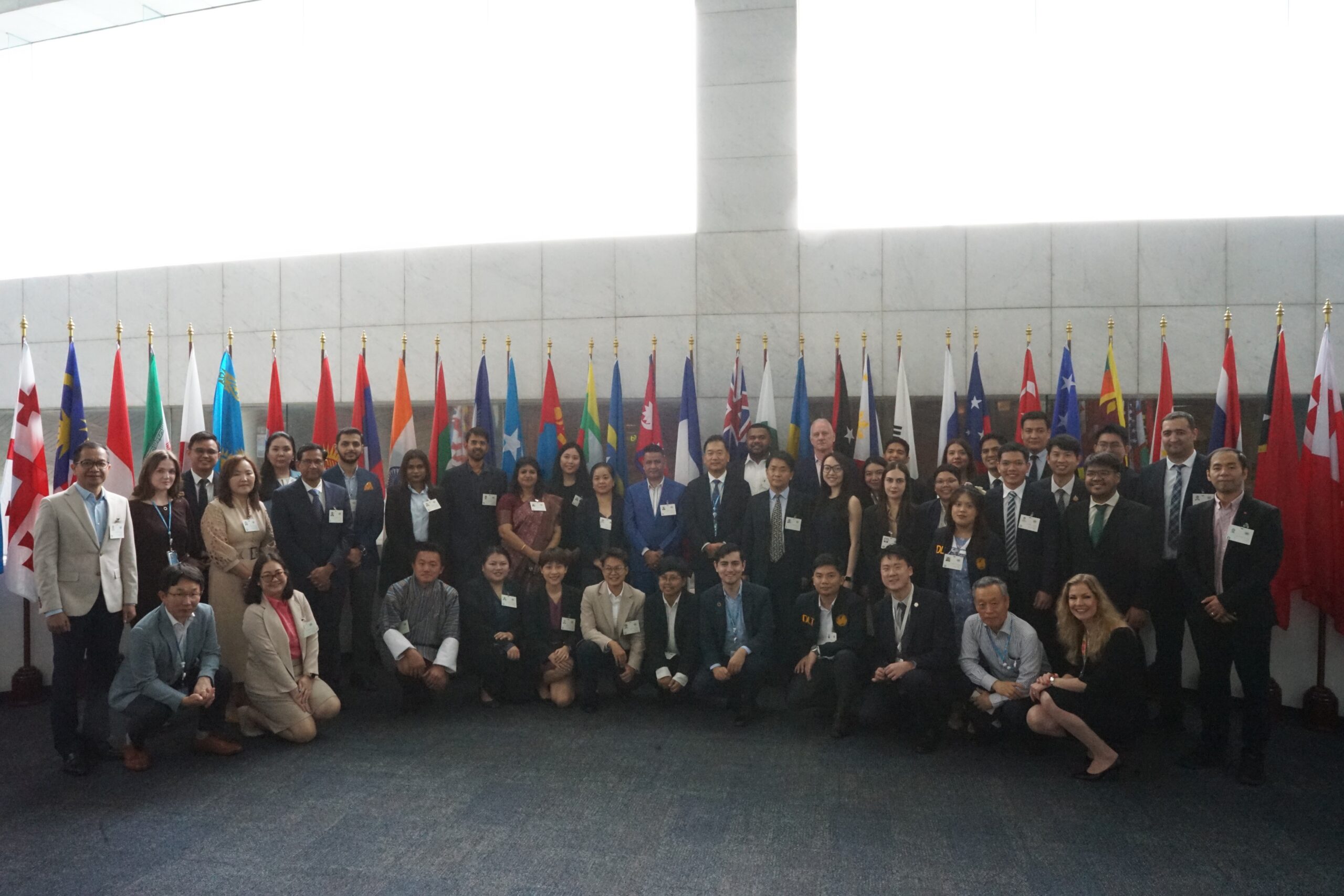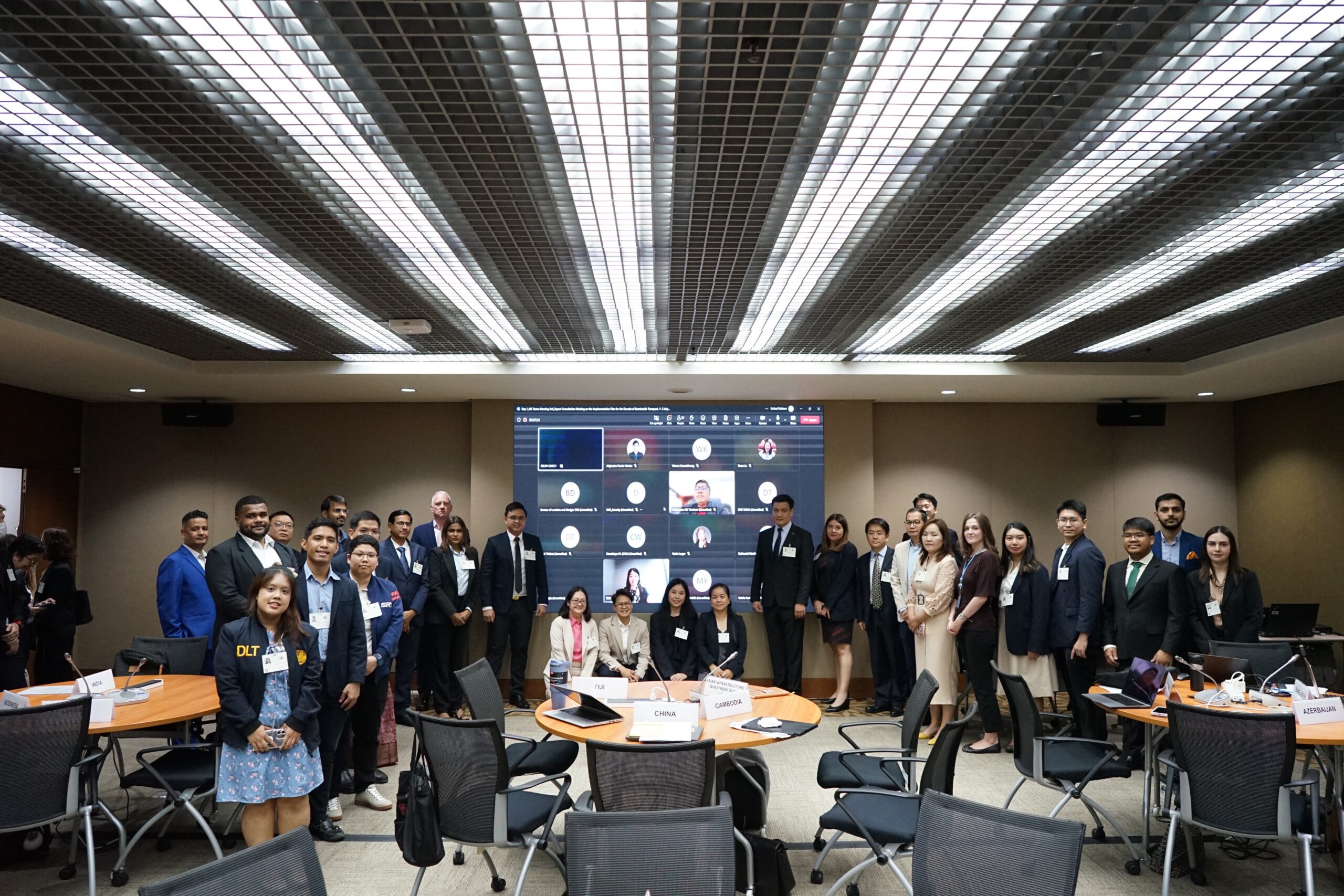Transport for All: A People-Centered Agenda for Advancing Sustainable Mobility

As the Secretariat for the Asia Low Emission Development Strategies (LEDS) Partnership (ALP), ICLEI South Asia participated in a high-level expert consultation meeting in Bangkok, Thailand, on 1-2 July 2025. The meeting, co-organised by the United Nations Economic and Social Commission for Asia and the Pacific (ESCAP) and the Asian Infrastructure Investment Bank (AIIB), was held under the “UN Decade of Sustainable Transport 2026-2035” and marks a key moment in shaping its outcomes. The event brought together delegates from over 20 countries and leading institutions, who emphasised on the need for inclusive access to transport, decarbonising systems through alternative fuels and electric vehicles, enhancing freight efficiency, and leveraging digital technologies for smarter systems, and outlined a transformative agenda for advancing sustainable transport across Asia and the Pacific.
Representing the Asia LEDS Partnership (ALP), Vijay Saini, Senior Manager (Urban) at ICLEI South Asia, shared interventions and recommendations on how transforming transport is central to achieving inclusive, low-carbon, and resilient development, and emphasised the need for people-focused and climate-sensitive changes in the transport sector.
Mr. Saini highlighted the need for inclusive, people-first approaches in mobility planning. This means integrating community-driven transport needs assessments, applying universal design standards, and promoting easy access to various modes of transportation in urban strategies to ensure that the system meets the needs of women, youth, the elderly, and other vulnerable groups. The meeting made a strong call to speed up the transition towards cleaner transport by developing electric mobility roadmaps at both national and local levels, increasing the number of electric vehicles (EVs), promoting clean fuels, and encouraging innovation in transport technology.
The discussions emphasised the need for improving regional freight connectivity through multimodal logistics hubs, digital tools, and solid legal frameworks, which are crucial for enhancing economic integration and reducing emissions in the freight sector.
Recognising financing low-carbon infrastructure both as a challenge and an opportunity, the dialogue proposed attracting private sector investment, making institutional reforms, and incorporating climate risk into investment choices. Blended finance was highlighted as a key tool for national transport plans to help close financing gaps.
Platforms that facilitate peer learning, knowledge sharing, and regional policy discussions to enhance action across borders will be vital for achieving shared sustainable transport goals. Participants called for documenting and sharing successful nationwide initiatives to allow for replication and adaptation across regions.
The consultation underscored that sustainable transport is a complex challenge that requires a united response from policymakers, financial institutions, technology providers, and communities. It is essential to embed social equity, climate goals, innovation, and inclusive dialogue into transport strategies, as they are crucial factors for driving action in the next decade.
The Asia LEDS Partnership (ALP) is a voluntary regional network of public, private and non-governmental sectors, focused on promoting and implementing low-emission, climate-resilient development in the Asia and Pacific region. It brings together policymakers, donors, practitioners, and experts to explore synergies for cross-collaboration among diverse partners, advancing climate goals through a strong emphasis on peer-to-peer learning, knowledge sharing, and climate best practices.
ICLEI South Asia’s active involvement, through its role under the Asia LEDS Partnership, contributed valuable insights into integrating equity, technology, and finance in transport changes. As the region approaches the coming decade, this meeting lays a solid foundation for ongoing collaboration, innovation, and action in developing a future-ready transport system.
We are pleased to feature two insightful case studies contributed by Chinese Taipei, showcasing practical experience in advancing energy efficiency and industrial low-carbon transitions. These cases highlight innovative approaches ranging from market surveillance systems for energy-using appliances to strategies driving the cement sector’s low-carbon transformation.
Online and Offline Market Surveillance Inspection Systems for Energy Efficiency Management of Energy-Using Equipment and Appliances: READ HERE
Promoting a Low-Carbon Transition in the Cement Industry of Chinese Taipei – Strategies and Outcomes: READ HERE


